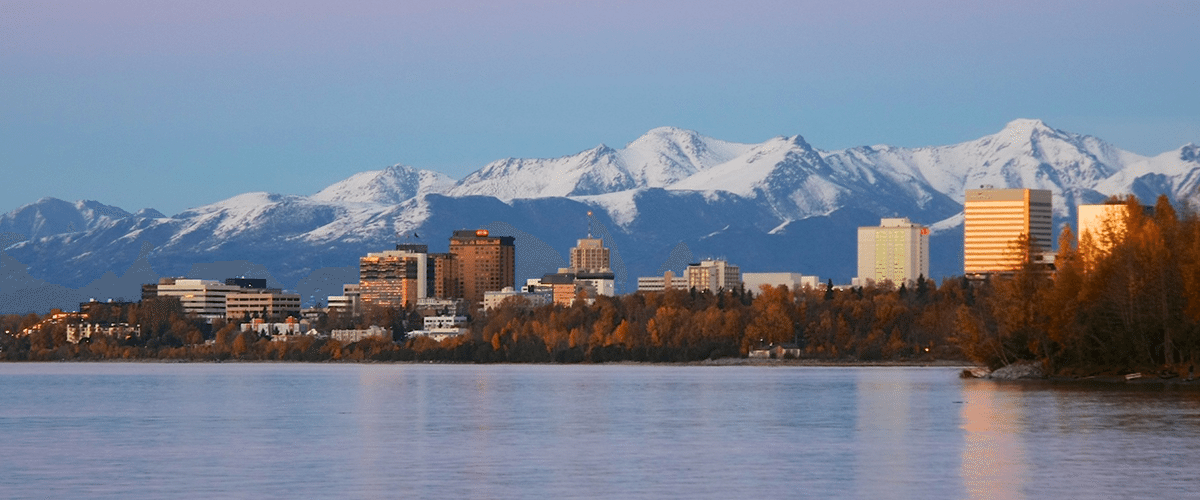[vc_row][vc_column][vc_column_text]
It looks like recreational marijuana could be available to buy in Alaska next February, but many business owners feel like that date is too far away.
Last month, the state’s Alcohol and Marijuana Control Office Director Cynthia Franklin announced that recreational marijuana will become available to purchase by early next year, Alaska Public Media reports.
fv
“I believe that by the time we arrive at February of 2017 we will have stores that are operating; we will have product manufacturers that are making products, which have been individually approved by this board – which is a tremendous amount of work,” Franklin said in mid-September at a joint meeting of the House and Senate judiciary committees. “We will have testing facilities that are testing; and we will have a lot of cultivation facilities growing a lot of legal marijuana in Alaska.”
Since marijuana advocates and industry entrepreneurs voiced their unhappiness with the timeline, however, Franklin told the Marijuana Business Daily that the Marijuana Control Board is doing “an excellent job of moving toward full industry operations and investment,” and that she expects sales to begin earlier than she had estimated last month.
“I cannot tell you the exact date the first retail marijuana store in Alaska will open, but I can assure you it will be long before February and perhaps before Nov. 1,” Franklin told Marijuana Business Daily.
The already-long delay has been painful for them financially, as many hopeful investors have been preparing for business but are still unable to earn revenue. Alaska voters legalized recreational marijuana in November 2014 by passing Measure 2, which allows adults aged 21 and older to possess up to 1 ounce of marijuana. The law took effect in February 2015, but the board’s been slow going in establishing the industry’s rules and getting the program up and running.[/vc_column_text][/vc_column][/vc_row][vc_row][vc_column][vc_single_image image=”17313″ img_size=”1200×250″ onclick=”custom_link” link=”https://www.medicalmarijuanainc.com/education/#cannabis-legality”][/vc_column][/vc_row][vc_row][vc_column][vc_column_text]“It has been two years, and I’m getting to the point where some of my clients have been paying rent for a really long time,” lawyer Jana Weltzin said of her marijuana business clients.
It was just about a month ago that the Alaska Marijuana Control Board approved the state’s first marijuana retail stores. Franklin has said that not having enough staff members to handle the extensive workload is responsible for the delays. Once the program is operating, the legal marijuana market in Alaska has the potential of reaching $21.8 billion to $44 billion by 2020, according to reports.
Also a concern for Alaska marijuana industry advocates and lawmakers is finding banks that will partner with marijuana businesses.
“Right now, the Division of Banking and Securities is not aware of any bank or credit union in our state that is willing to bank marijuana businesses at this time, because the businesses are illegal, under federal law,” said Division of Banking and Securities Chief Examiner Patrice Walsh.
Walsh believes that banks will continue to refuse marijuana businesses until Congress amends the federal law, which as of now classifies cannabis as a Schedule I substance under the Controlled Substances Act. Earlier this year, the federal House Committee on Rules blocked an amendment to a bill that would protect banks that service the legal cannabis industry.
A 2014 directive by former Deputy U.S. Attorney General James Cole and the Financial Crimes Enforcement Network says that banks are allowed to serve legal marijuana businesses, provided they follow anti-money-laundering procedures, but banks continue to be wary of what they believe to be a risk of losing their FDIC insurance.
The current banking restrictions force marijuana businesses to operate as primarily cash businesses, which significantly increase security concerns. Medical Marijuana, Inc.’s subsidiary MPS International, created in 2014, was started to assist cannabis businesses with safety and security complexities. MPSI offers revenue and inventory transportation, video surveillance and armed and unarmed security.
Learn more about the recreational and medical marijuana laws in Alaska on our education page. Get the latest information on the development of the market in Alaska and throughout the U.S. by visiting our news feed.[/vc_column_text][/vc_column][/vc_row]






